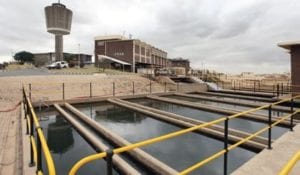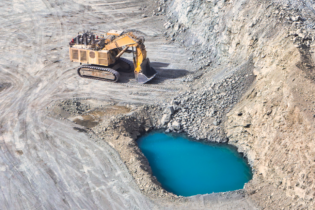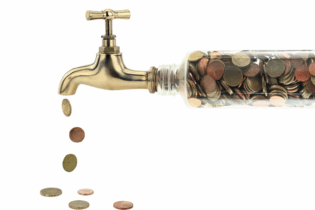In July this year Umgeni Water turned 40 years old – a remarkable milestone in the history of the organisation.
FOR FOUR decades, Umgeni Water has been abstracting raw water, treating it and delivering it as safe drinking water to six municipalities which, in turn, supply this water to an estimated 4.8 million consumers. The water produced by Umgeni Water meets the South African National Standards 241 for drinking water quality and, as a consequence, received nine Blue Drop awards in 2012 for excellence in water quality management in partnership with its customers. The role Umgeni Water plays in public health is of particular importance in preventing water-borne diseases and other illnesses, and the treated water that flows through the pipelines of Umgeni Water is among the finest in the country. Umgeni Water was established in June 1974 in terms of Government Notice No 114. Headquartered in Pietermaritzburg, it initially had a staff complement of four and customers that included the cities of Durban and Pietermaritzburg and water users in the corridor between the two cities and in the Midlands. Present-day Umgeni Water is the largest water board in KwaZulu-Natal and the second largest organisation of its kind in South Africa. It has a service area ten times larger than its original size, with 900 staff members and six municipal customers. Umgeni Water operates in accordance with the Water Services Act (Act 108 of 1997) and the Public Finance Management Act (Act 1 of 1999), and is categorised as a national government business enterprise. It reports directly to the Minister of Water and Sanitation. The organisation derives its revenue from the sale of bulk potable water to its six customers:• eThekwini Metropolitan Municipality
• iLembe District Municipality
• Ugu District Municipality
• Harry Gwala District Municipality
• uMgungundlovu District Municipality
• Msunduzi Local Municipality. A total of 435 million m3 of potable water per annum (1 191 Mℓ/d) is supplied to these customers.
Umgeni Water’s infrastructure assets, in support of its potable water business, comprises:
• approximately 746 km of pipelines and 66 km of tunnels
• 14 impoundments, of which six are managed on behalf of the Department of Water and Sanitation and two on behalf of the Ugu District Municipality
• 13 water treatment works, of which two are managed on behalf of the Ugu District Municipality, an additional 14 small water treatment works and 10 borehole schemes are managed on behalf of the iLembe District Municipality.







